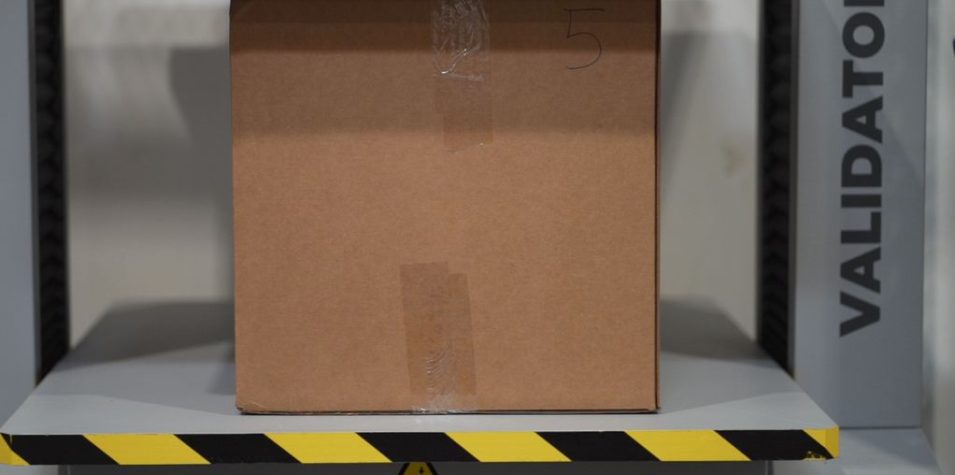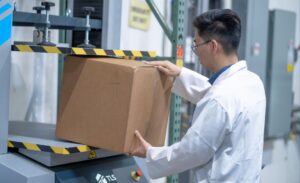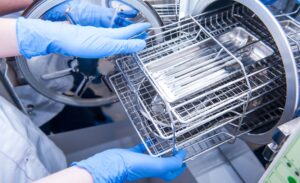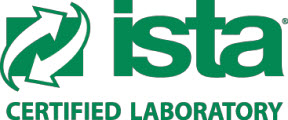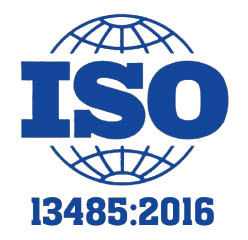Medical devices and their packaging require specific standards testing before they can be shipped and distributed. These standards are designed to ensure devices maintain a sterile barrier and can withstand the rigors of various transportation methods they pass through, including environmental challenges such as temperature, or inevitable bumps and drops they may encounter throughout their journey. Testing standards outlined by the International Safe Transit Association (ISTA) are pivotal to achieving safe delivery to your end user.
In the following, we’ll break down the basic approaches to medical package testing and outline ISTA requirements you should be familiar with.
Medical device package testing methods
Medical package testing is necessary to determine if a packaging solution can meet regulatory requirements and reliably survive shipping and distribution conditions.
Package validation testing
This type of testing has a focus on the package seal. Package validation testing verifies if the seal is leak-free and secure from outside contaminants.
Distribution simulation testing
Distribution simulation testing exposes packaging systems to the real-life hazards found throughout transit, such as being dropped, shaken, or stacked underneath or atop other packages.
Accelerated aging and real-time aging
These types of tests assess shelf life and the impact of ageing on materials while they wait for distribution.
ISTA standards for medical device packaging testing
ISTA standards help manufacturers improve products and packages, the outcomes of which protect a brand’s reputation and their bottom line. Benefits to such testing include shortened package development time, reduction of potential damage or product loss and economically balanced distribution costs.
There are three specific types of ISTA tests for medical device package testing: Non-simulation integrity performance tests, partial simulation performance tests, and general simulation tests.
ISTA-1A and ISTA-1G non-simulation integrity performance tests
Non-simulation integrity performance tests validate strength of a product and package combination. ISTA-1A covers packaged products that weigh 150 pounds or less. It is a simple way to drop test and evaluate repetitive, fixed shock vibration. ISTA-1G has the same weight requirement, and tests for random vibration impact.
ISTA-2A partial simulation performance tests
Partial simulation performance tests use at least one element of the 3 Series type general simulation performance tests along with basic elements of a 1 Series type non-simulation integrity test. ISTA-2A is also for packaged products weighing 150 pounds or less, and tests for temperature and humidity.
ISTA-3A general simulation performance tests
General simulation tests reenact damage-producing motions, forces, conditions, and sequences of transportation environments. ISTA-3A has the same weight requirements as the previous tests. It is primarily used as a general simulation for the transportation events that a product and its packaging will experience as it makes its way through a parcel delivery system. These include simple shaped random vibration, varying drop heights and atmospheric conditioning.
Medical device manufacturers benefit from ISTA testing standards, as they contribute to a product reliably surviving its transit and remaining safe for use by the end user. These standards can cut your time to market and prevent potential mishaps, saving your bottom line in the long run.
ISTA packaging test standards are ingrained in Life Science Outsourcing (LSO) protocols and are a vital part of the medical package testing services we offer based on nearly 30 years of industry experience. LSO is an ISTA-certified packaging test lab, and our testing and validation services are based on ISO 11607-1:2019 and adhere to FDA, ISO, EN, and CE Mark requirements.
Looking for more information on this subject? Read Maximize Time and Cost Benefits with the Power of Pre-Validated Packaging for Medical Devices.
Start up. Speed up. Scale up. Founded in 1997, Life Sciences Outsourcing is an FDA-registered and ISO 13485-certified organization with services and capabilities spanning the entire medical device product life-cycle – from turnkey manufacturing, testing, validation, and sterilization to precision packaging, fulfillment, and distribution. Email us at info@lso-inc.com or call (714) 672-1090 today to get started.

